'Returning Feels Like a Beautiful Homecoming'
Dana Leigh Lyons on minimalism, gentleness, and rooster alarm clocks in Thailand
Welcome to Wanderlust Salon, a monthly travel series about new places, new experiences, and new perspectives. Each month we meet up with a different guest to explore a corner of the globe that’s left a permanent mark on their heart.
Superficially, Dana Leigh Lyons and I might appear to have little in common aside from being North American expats living on opposite ends of the Asian continent. Dana—who publishes Sober Soulful and recently relocated to Chiang Mai, Thailand—is a queer, sober writer and Doctor of Traditional Chinese Medicine. I am none of those things except a writer. But sometimes you encounter someone and you just…click.
Dana describes her writing as “heart-sourced” and “no bullshit” (I can’t tell you how much this speaks to me) and as I started to read her work, I felt we had kindred spirits despite our different life experiences. Dana and I are both constantly searching for humanity in a world that can seem increasingly inhumane; we’re willing to take drastic measures in search of well-being and fulfillment; and we feel compelled to push back on hate that masquerades as political and social discourse. I sensed Dana’s perspectives would resonate with Caravanserai readers, so I asked if she’d be willing to share more about her life in Thailand—and friends, I am so glad she agreed, because as you’ll see below, her words are a balm.
Dana tells me that Chiang Mai has drawn her in several times. “I have beautiful memories of belonging to a small, eclectic community of expats here two decades ago,” she says. “Life then revolved around a meditation sangha, a quaint yoga studio, and a scene that no longer exists.” But that community isn’t what brought Dana back to Chiang Mai (this time around, she’s avoiding expat enclaves and seeking more connection with local culture). It was the desire to lead a more stress-free life and the transformative relationship she had formed with a Traditional Chinese Medicine doctor twenty years prior, when he cured her of a health crisis that started mysteriously and suddenly.
That recovery set Dana on the path to becoming a Doctor of Traditional Chinese Medicine herself, and somewhat miraculously, she found her original doctor after moving back to Thailand this summer. “[H]e recognized me straight away but didn’t seem at all surprised that I was popping by some twenty years later,” she says. Perhaps he wasn’t surprised because sometimes we are meant to arrive in a certain place, and the universe conspires to get us there—and that seems to be the case for Dana.
“I trust that I’m exactly where I need to be in this moment,” she tells me. “I have faith that kindred connections will emerge organically and naturally, just by staying open hearted and living my life.”
Read on for more from Dana about her spiritual, minimalist life in Thailand.
Thank you so much for being here, Dana! Tell us about your personal connection to Thailand—how much time have you spent in the country, and what brought you there?
My partner, my two Siamese cats, and I moved from Canada to Thailand in June and plan to stay here long term. For now, we’ve settled in Chiang Mai, where I lived two decades ago, in my late twenties. The city has changed a lot since then, but returning feels like a beautiful homecoming.
Before leaving Canada, we knew we wanted to move abroad and considered dozens of countries—pretty much anywhere that checked certain boxes: long-term visas, no quarantine for cats, minimal safety concerns, inexpensive enough that we can start saving for the future (I’m 49, my partner’s 61), and good wifi for working remotely.
Our first choice was Egypt, where I lived previously and know the language. Ultimately, however, getting long-term visas there felt too uncertain—particularly since we were bringing my highly sensitive, travel-averse cats. I just couldn’t risk moving back to Egypt without knowing how long we could stay.
So, we started over from scratch and (despite never having been there) decided on Cambodia. While my heart secretly longed to return to Thailand, Cambodia felt like a smarter, more logical choice since getting long-term visas there is less expensive and less complicated. We spent the next few months preparing for that move…only to have the whole thing implode two weeks before leaving.
Long story short, we ran around like mad those two weeks reorganizing our travel plans and life plans. The heart wants what it wants, the universe works in mysterious ways, so Thailand it is! Now that we’re here, I’m deeply grateful things unfolded just as they did.
What is your favorite thing about Thailand? What makes it unique? Tell us about the sights, smells, and tastes!
We’re renting a small house at the end of a cul-de-sac in a working-class neighborhood with lots of tropical greenery and collectively cared-for alley cats. We listen to the neighbors’ toddler each evening and rooster “alarm clocks” at dawn. We buy all our food from the outdoor market a short walk away.
Other than my partner and me, it’s rare to see farangs (foreigners) in this part of town. I love that—the last thing I want is to wall myself up in an expat enclave. I also love that where we live feels like the Chiang Mai I remember, with fewer modern conveniences and less homogenization and so-called progress. That isn’t the case everywhere in the city, which is much more “developed” compared to before.
Despite how things have changed over the years, the aliveness and intensity of life, the juxtaposition of profound and profane, the particular flavor and flow of Thai culture—it’s still here. Being here, I feel home.
Did you arrive in Thailand with an existing community? Or are you still working to find one (and if so, how’s that going)?
I have beautiful memories of belonging to a small, eclectic community of expats here two decades ago. Life then revolved around a meditation sangha, a quaint yoga studio, and a scene that no longer exists.
This time around, I’ve been feeling reluctant to socialize or scope out the expat scene. That said, I do attend Thai language school twice a week and enjoy connecting with my classmates, who come from eight different countries. I interact with Thai people all the time, and while those interactions are consistently lovely, I look forward to learning the language so that I can communicate and connect more deeply.
The older I get (and the more times I move), the less internal pressure I feel to “create” or “find” community. I trust that I’m exactly where I need to be in this moment. I have faith that kindred connections will emerge organically and naturally, just by staying open hearted and living my life. My love of routine and tendency to return to the same market vendors, coffee shops, etc., each day supports this. People come to know me (and I come to know them) through kind, consistent interaction over time.
What is the most interesting or singular thing about Thai culture to you? Have you experienced moments of significant culture shock in Thailand?
There’s something about the flow of life in Thailand that resonates with my body-mind-spirit. Compared to the States (where I was born) and Canada (where I’ve lived most of my adult life), I experience Thai culture and daily interactions as reflecting more gentleness, quietness, fluidity, grace, conscious proprioception, and respect. Also avoidance of hostility, confrontation, and aggressive behavior.
I welcome and love this so much, and it stands in stark contrast to the loud, oblivious, inconsiderate, demanding behavior of some tourists and expats here. When I lived in Thailand previously, I experienced reverse culture shock upon returning to the States and Canada for the same reason.
Have you felt any shifts in your mindset or your spirit since moving to Thailand? How has life changed for you?
The other evening, after sitting down to meditate, I realized how much less anxiety I’ve been experiencing in Thailand—and how much more ease.
There are many reasons for this, including the general flow of life I described above. But another big, obvious one comes down to money: I can (finally) afford the cost of living where I am living.
Yes, my other worries are still present. And yet, living in Thailand, I can afford decent housing, nourishing food from the local markets, and outstanding healthcare from Western and Chinese Medicine doctors. After experiencing much dread around finances and not having enough money most of my life, this brings tremendous relief.
I’m not flush with cash or anything resembling affluent; as in Canada, I still live a modest, super minimalist lifestyle. It’s just that I can rest easy at night from this particular worry, freeing up energy for things that matter more deeply.
What’s the craziest/funniest/most touching thing to have happened to you in Thailand?
Soon after arriving in Thailand, I became extremely sick. But one day, in my flu-altered state, desperately wandering around Chinatown, I found my Traditional Chinese Medicine doctor from when I was here two decades ago. He’s originally from China, has no website, speaks minimal English, works wonders. When I found him, it felt like a miracle.
Some backstory: I first received acupuncture and herbs from Dr. Wang when living here in my twenties. I then returned to the States for a while but, less than a year later, plunged into a health crisis. Within the span of a few months, I went from having a physically advanced yoga practice and running an hour each day to being unable to walk without (unexplained, unpredictable) injuries. Abruptly and without known cause, my physically active lifestyle was over; my yoga practice was limited to sitting cross legged and breathing.
The Western doctor I saw said my bloodwork was perfect, diagnosed “aging,” and recommended pain pills. Instead, I moved back to Thailand—where I knew I could get (and afford) Dr. Wang’s excellent care.
And I did. Multiple times a week, Dr. Wang made house visits to the place I was renting in Chiang Mai. Thanks to Dr. Wang—plus weekly massages from a blind, elderly Thai man, a few visits to an outstanding osteopath on Phuket, and significant diet and lifestyle changes—I gradually, over the course of a year, got better. Only then did I feel secure enough healthwise to move to Canada, where I enrolled in a five-year program to become a Doctor of Traditional Chinese Medicine.
Finding Dr. Wang now—more than twenty years later and a Dr.TCM myself—leaves me without words. He not only helped me heal back then; he restored hope and changed my trajectory.
How I found him this time is pretty amusing. Bereft of motivation, optimism, and energy, I wouldn’t have searched had it not been for my partner. I kept telling him: “If only I could find Dr. Wang, if only I could find Dr. Wang, if only…” So he got us to Chinatown to find Dr. Wang.
It took some aimless wandering through a packed, cacophonous market. But lo and behold, right before giving up, we spotted the herbal dispensary. Rushing in, I saw him immediately: “That’s Dr. Wang!” I exclaimed, relief flooding my body.
Funny thing: he recognized me straight away but didn’t seem at all surprised that I was popping by some twenty years later. After looking at my tongue, taking my blood pressure and pulse, and asking a few questions, he wrote an herbal prescription and said to come back when it’s finished.
Within a day, I felt better. After a week, I’d fully recovered.
What are your favorite Thai foods and why? Are there any dishes that bring back special memories?
In Chiang Mai, there’s a massive street-food scene that revolves around outdoor markets featuring prepared Thai dishes as well as fresh produce and other ingredients. This is where we buy the vast majority of our food. It’s wildly inexpensive and a fantastic way to immerse ourselves in the local culture, interact with Thais, practice Thai numbers and phrases, etc.
Since I’m keen on patronizing local vendors but not proficient in Thai, gathering food is a bit of a guessing game and experiment. I mean, certain things are obvious: chicken and squid roasted on sticks, roasted whole fish, fried chicken, fried eggs, steamed and fried dumplings, regular rice and sticky rice, spicy condiments made from hot peppers, local sausages, fruits and veggies. But there are countless curries, noodle dishes, and such, and it’s taken some trial and error to discover my favorites.
One of those (which I’ve been missing since my last time in Thailand) is khao soi, which you can see and read about here. I’ll eat the chicken version but prefer veggies and tofu. You can also get it with beef, an egg, etc.
If I’m not eating khao soi, I select one or two prepared street foods from the market (usually spicy curries and/or fried eggs in spicy fish sauce with hot peppers, plus steamed rice). When I lived here previously, I ate lots of northern Thai sausages with sticky rice and hot-pepper-based condiments. Whatever I choose, it comes to a couple U.S. dollars per person per meal (could be less, and is sometimes half that; could be more, if we feel like sampling various options).
If I had 24 hours in Thailand and travel time wasn’t a factor, how would you tell me to spend it?
I find this question so hard! I’ve always been a slow traveler who stays someplace a while—usually without an itinerary or agenda, and usually without much interest in “seeing the sights” or even checking “off-the-beaten-path” boxes off the list.
If I had 24 hours in Thailand, I’d spend half that time wandering around a city (I’m partial to Chiang Mai) and half that time wandering through the countryside (perhaps in Mae Hong Son province, near the border with Myanmar).
I’d breathe in the sights, sounds, scents, and feel of those places as much as possible: walking around without a plan, being fully present, imprinting the spirit of the place on my memory and heart.
Thank you so much for joining me, Dana! Subscribe to Sober Soulful for Dana’s monthly personal dispatches from Thailand, as well as her work examining our relationships to alcohol and other drugs, social media and online technology, food and body, money and spending, work and external validation, and ways of perceiving and relating.
reader, I’m curious…
Do you actively seek out community when you’re somewhere new, or do you prefer to make connections organically? Have you ever found yourself in a faraway place that ended up being exactly where you needed to be in that moment?
Did you know that I send even more good stuff to paid subscribers every week? Recent posts include travelogues from the Balkans and a thread about how we record our adventures. Please upgrade if you’d like to follow along.
Back next week with a travel memoir that is heavy and spiritual—I hope you’ll love it.
See you for our next adventure,
Sam



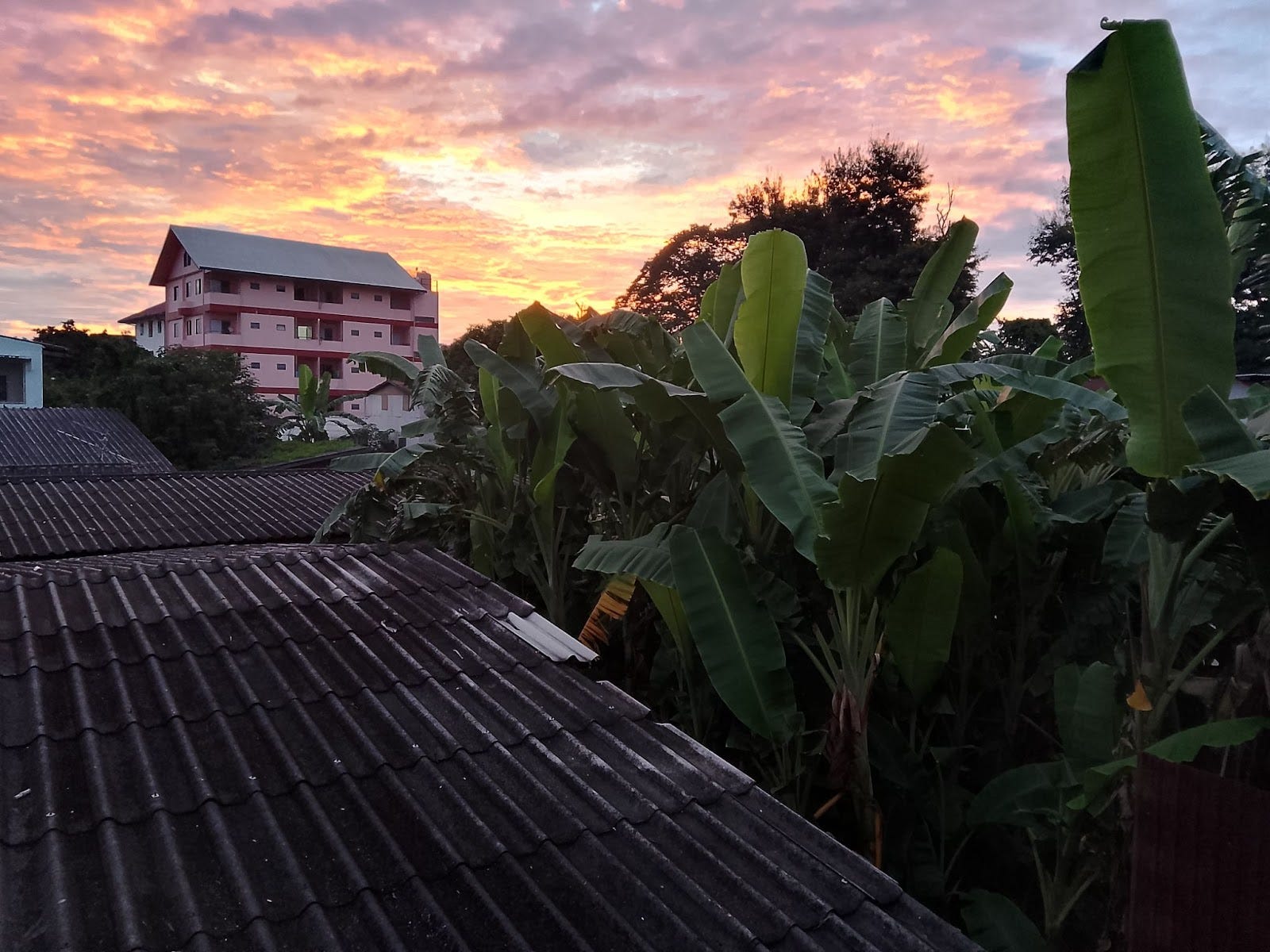


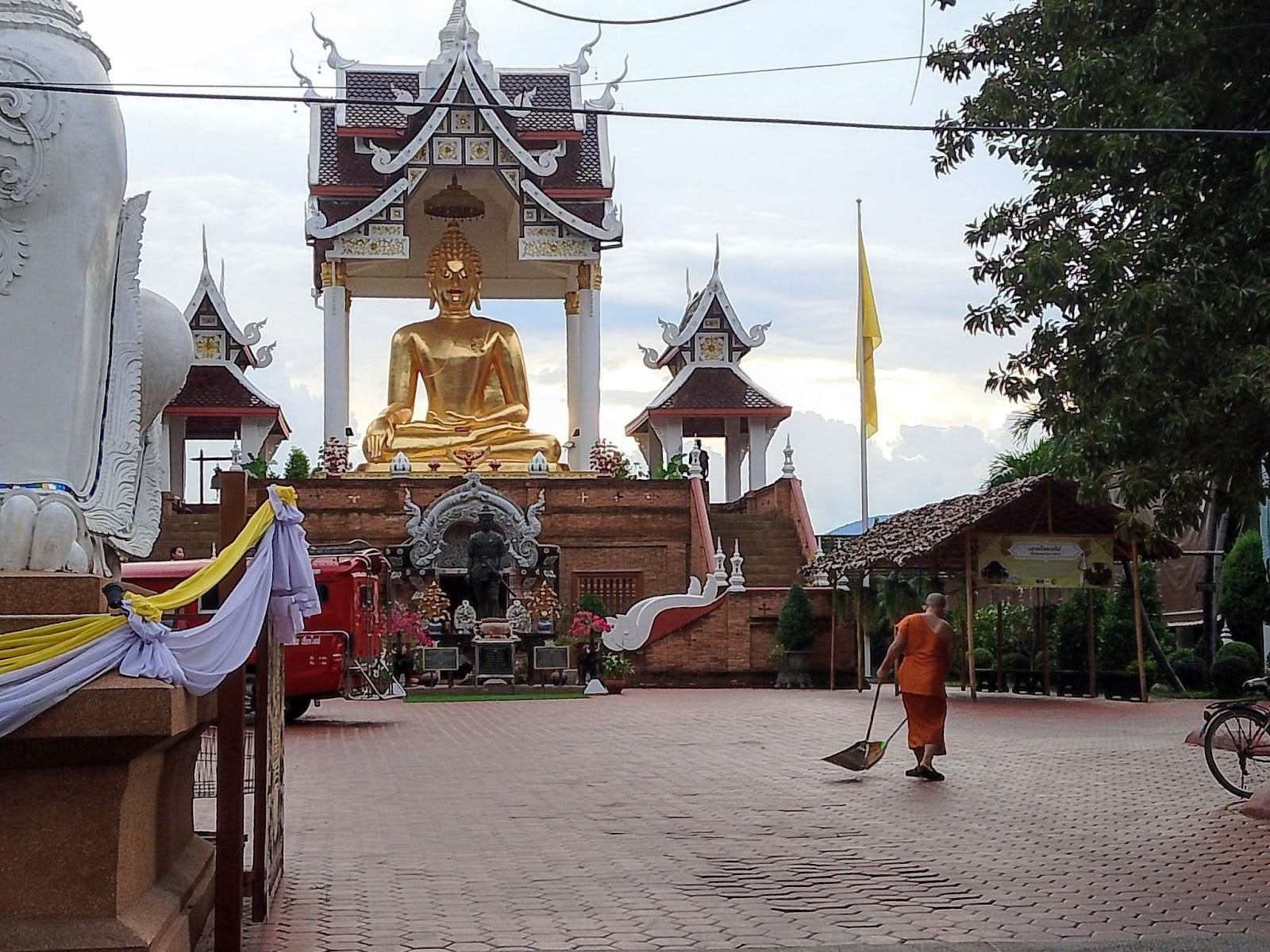
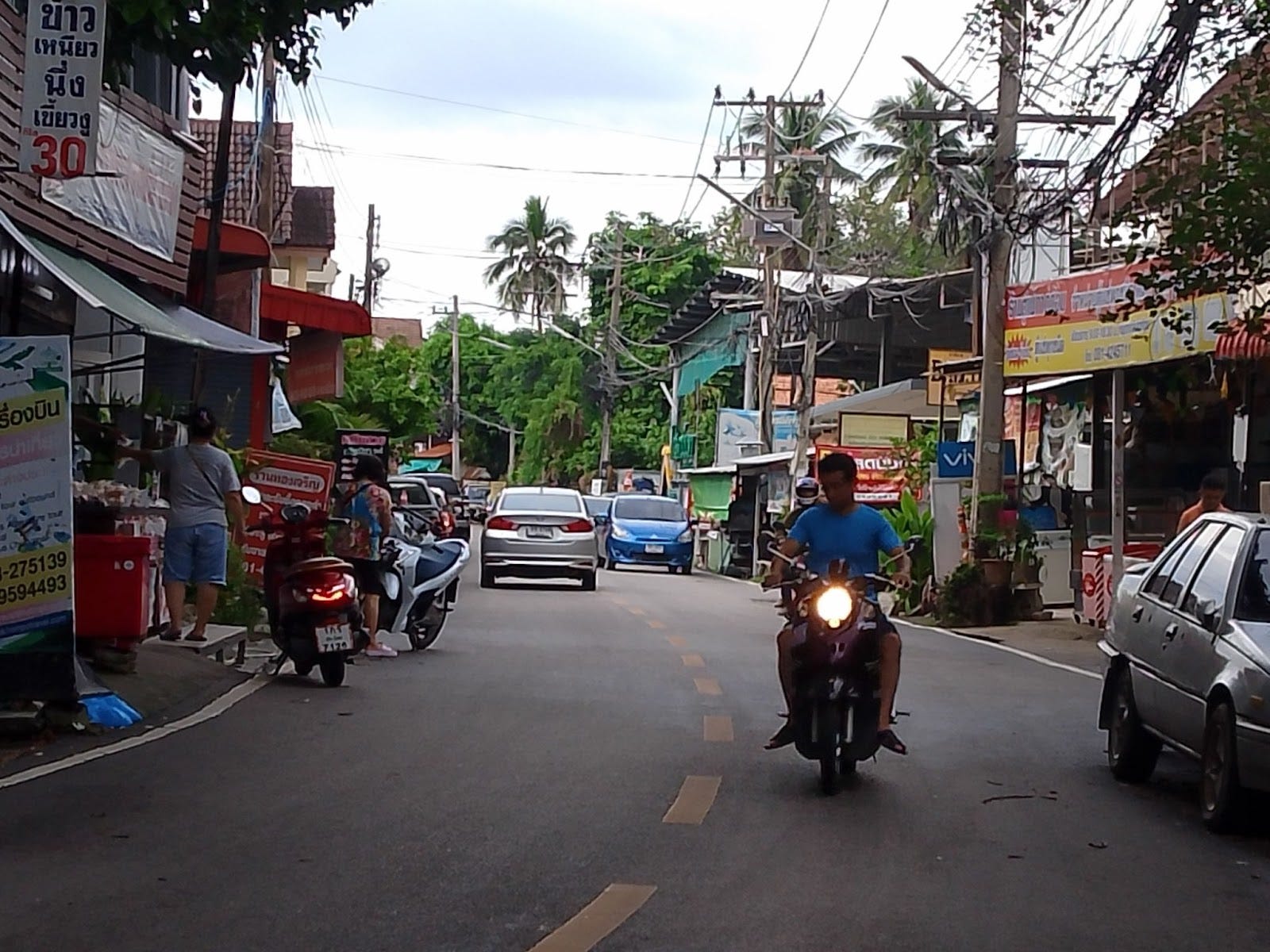
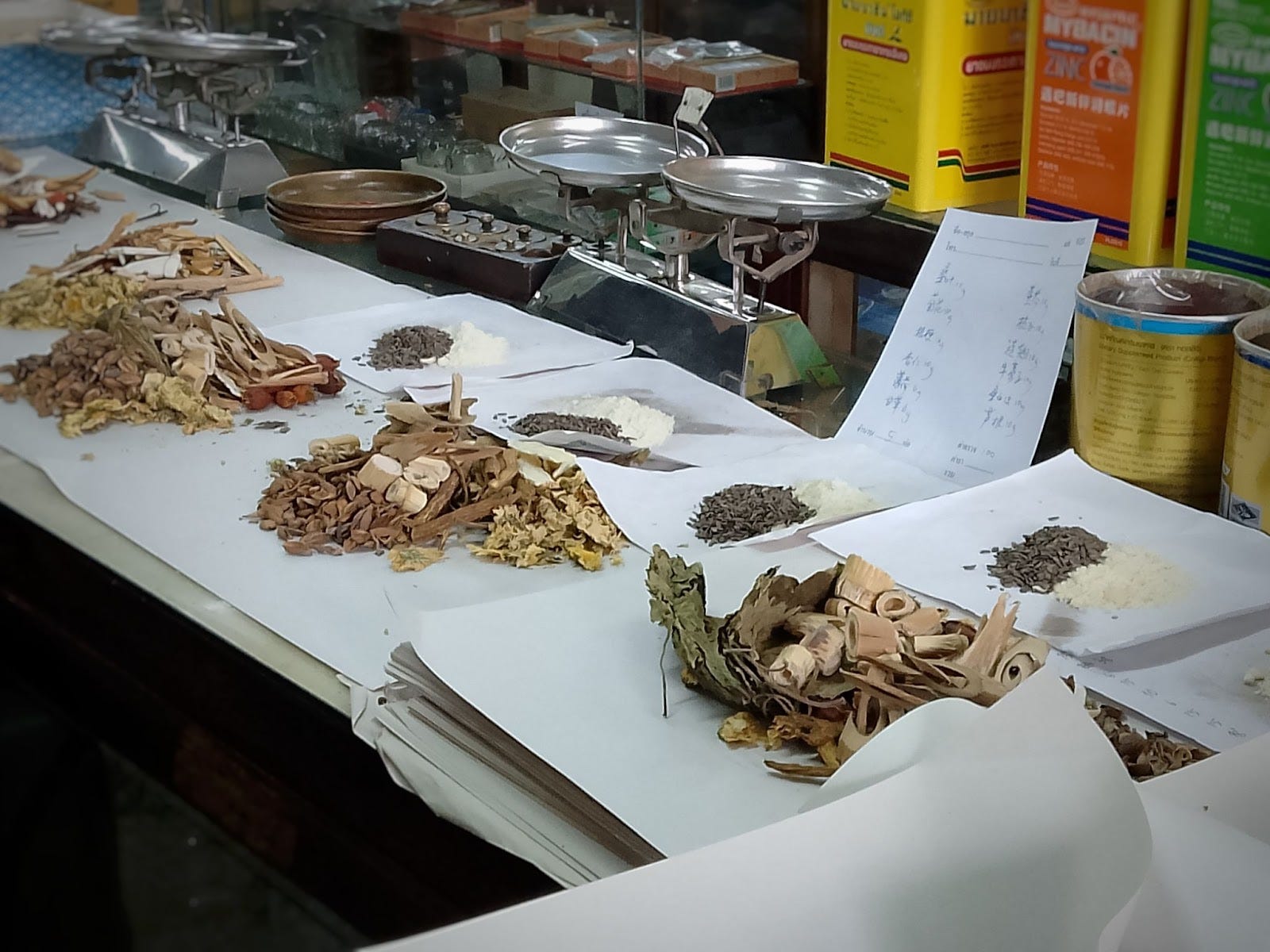
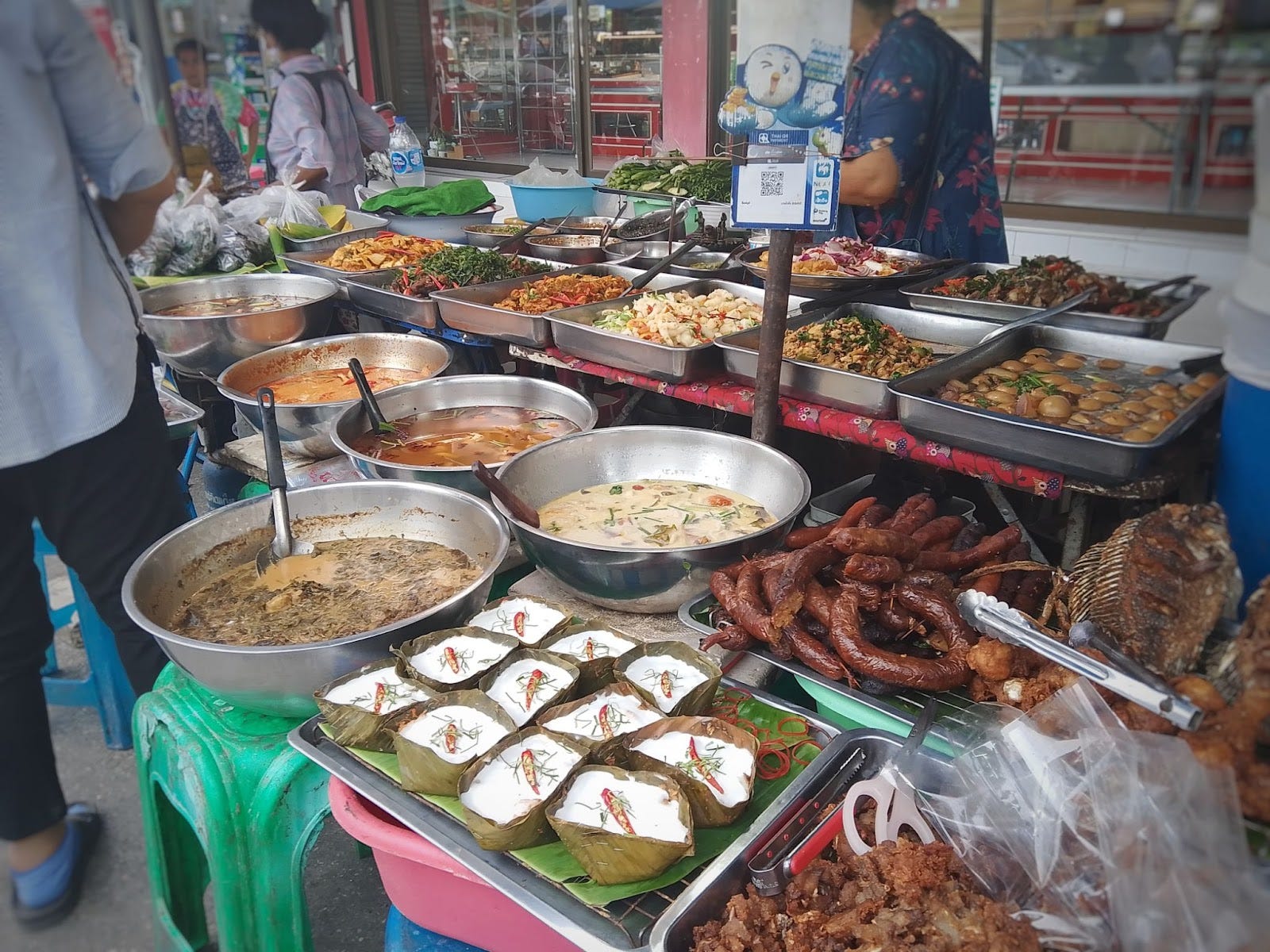
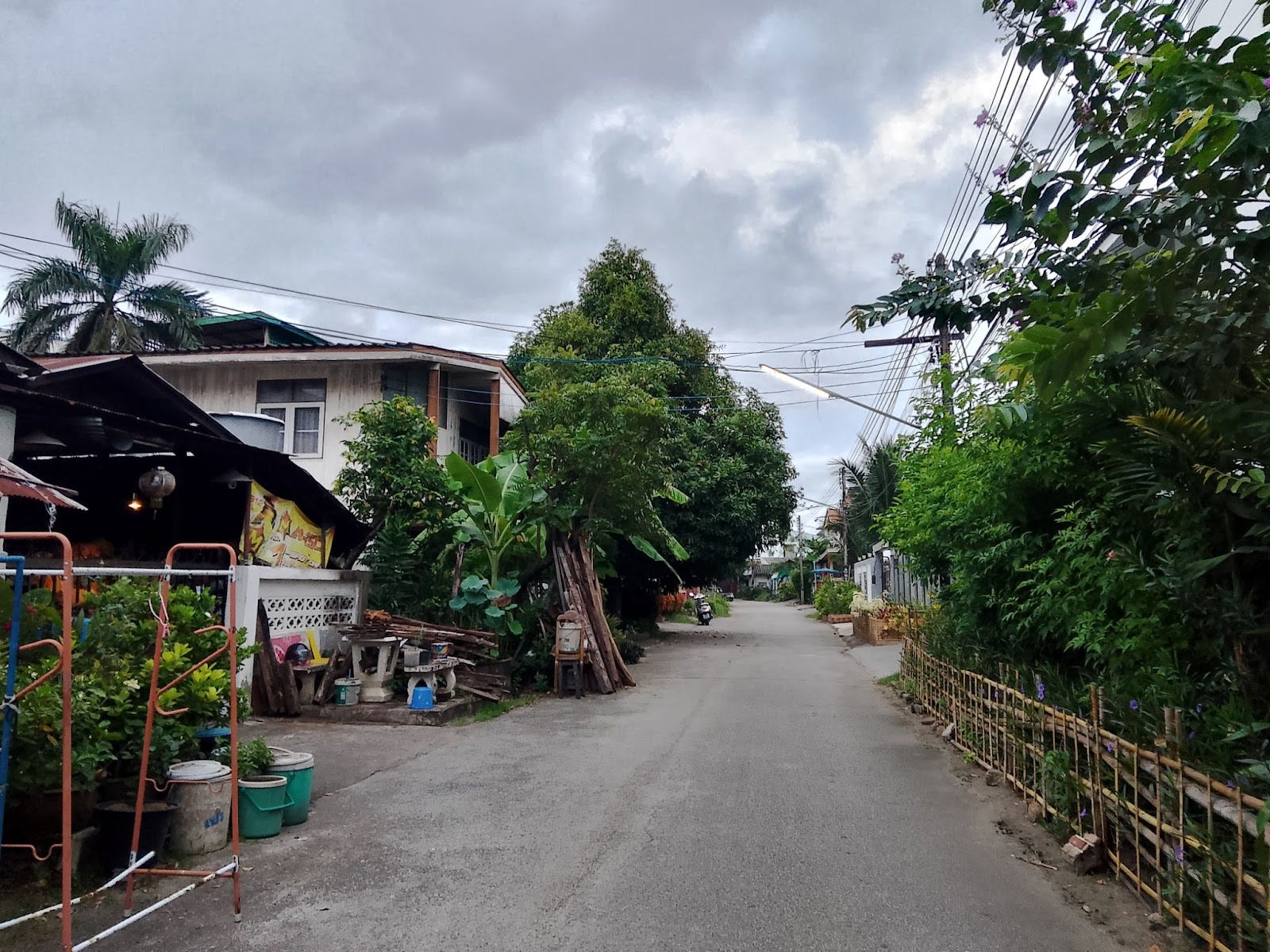
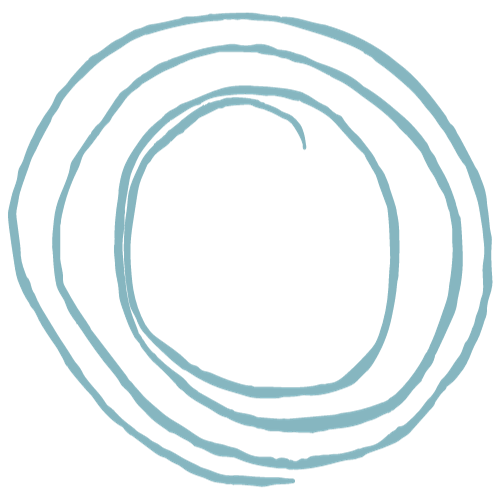

you two!!! I cannot tell you how touched (and teary!) I am reading this interview. Sam, your questions are so spot-on, and I loved the one about shifts in mindset or spirit in particular. Your writeup for the intro was also beautifully emotional, I could gush and gush about it. And Dana, even though I've come to know snippets of your story, reading them here felt wholly new. You are such a wise woman and a beautiful writer. amazing work, both of you.
I lived in Bangkok during my sojourn in Thailand, but I've often thought that if I ever returned to live in the Land of Smiles again I'd try Chiang Mai. In any case, I'm glad to know that quiet neighbourhoods still exist.